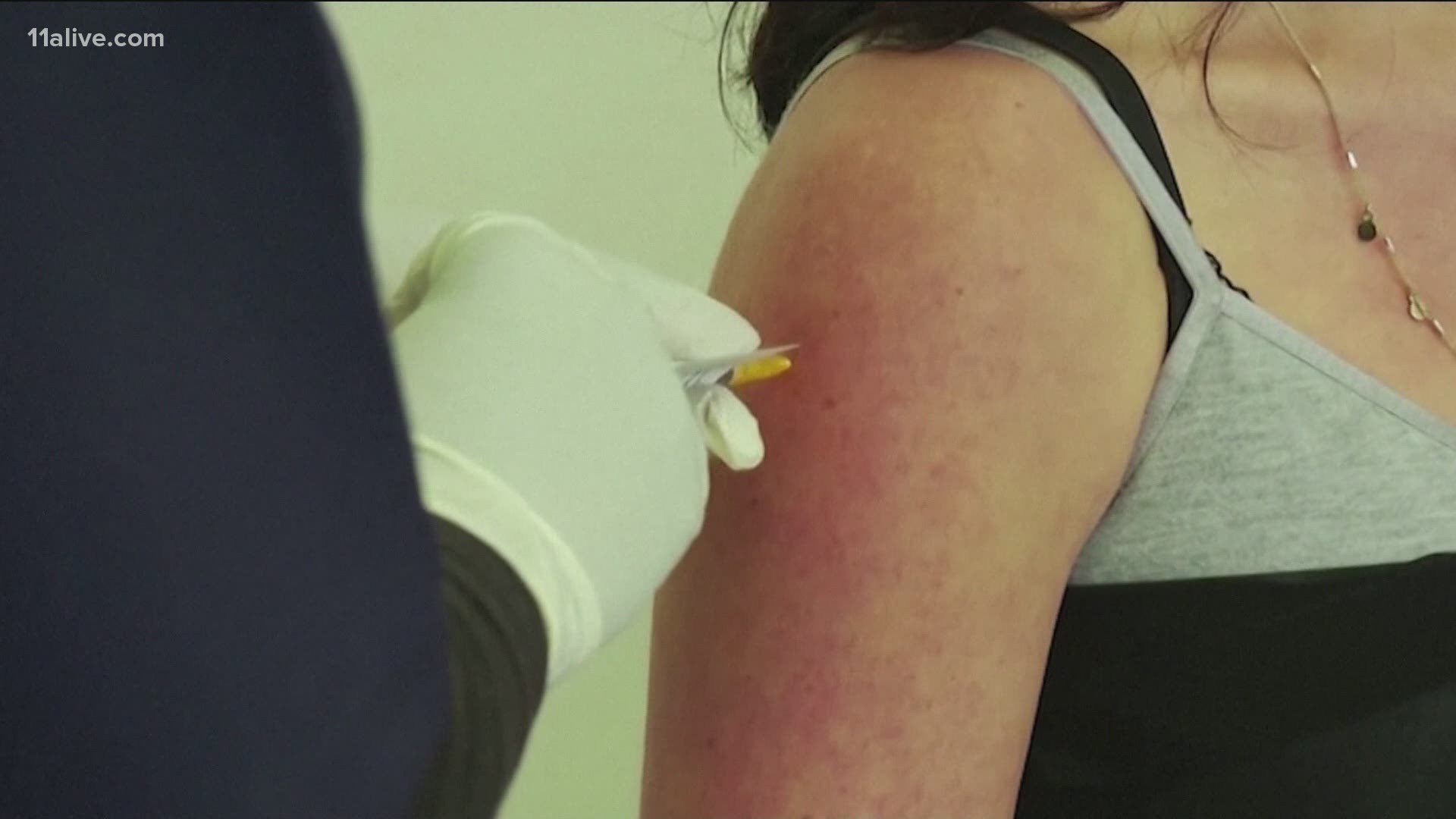ATLANTA — It's been almost a year since the coronavirus took hold in the United States, upending life as we know it in almost every aspect. And while vaccinations against COVID-19 are ramping up, many are asking: can the vaccine really end the pandemic?
We asked Emory University infections diseases expert, Dr. Carlos del Rio. He said it depends on whether or not you're taking a global view.
"This is a global pandemic, and vaccinating America and the people in Atlanta is not going to end it right?" he asked rhetorically. "We have to vaccinate the world."
And that's going to be a tall order, according to del Rio.
"We're talking about millions and billions of people that you have to vaccinate globally," he said, adding that right now, 37% of the vaccines given globally have been in the United States.
According to vaccine data from Emory, just about 33.8 million Americans, or 10% of the population, have received their first dose of the vaccine - with around 10.4 million Americans, or 3%, receiving both doses. Here in the US, the Biden Administration has already said it will be ramping up vaccine distribution to states.
But elsewhere in the world, del Rio said there are countries that have not yet given the first shot.
"So will it end the pandemic in the US? Yeah, maybe," del Rio said. "But there still may be a raging pandemic in Mexico and Brazil or multiple other countries."
According to Bloomberg's vaccine tracker, more than 152 million doses have been administered across 75 countries. The latest rate was roughly 5.64 million doses a day.

